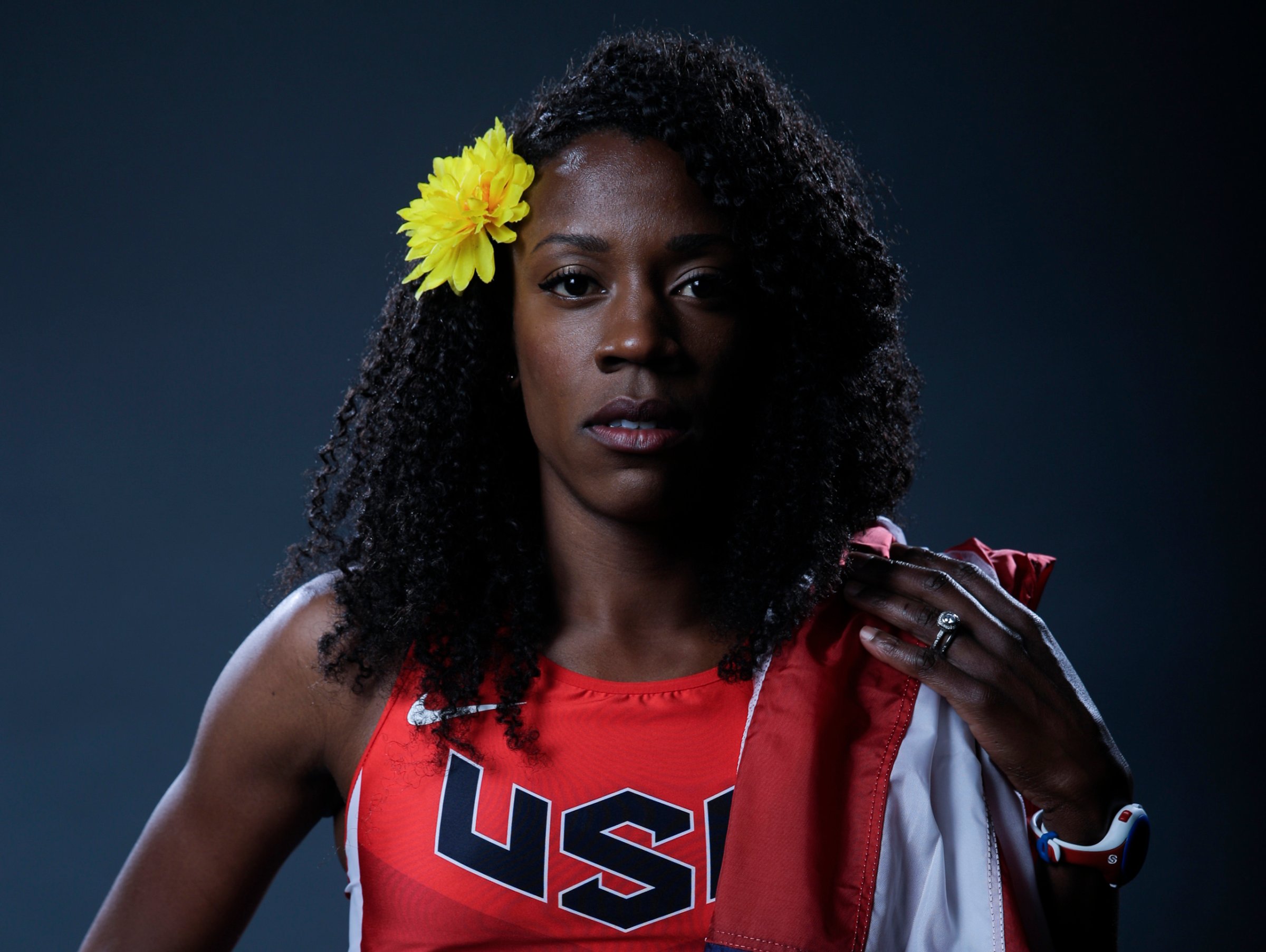
I run the 800 meters, a grueling race that requires everything you have both mentally and physically. At the 2011 World Championships in Daegu, South Korea, I finished fourth, missing out on a bronze medal by just 0.06 seconds. At the 2012 Olympic Games in London—the biggest moment of my career—I missed the podium by 0.4 seconds. Then, at the 2013 World Championships in Beijing, I again finished fourth, losing out on a medal once more by an agonizing 0.04 seconds. If you combine all three races, I was just one half second away from earning three medals. I was that close; a blink of an eye. To fall short was heartbreaking.
As an elite-level athlete, you don’t get anywhere complaining or feeling sorry for yourself. The reality is, I’m not the first runner to come close to victory, only to fall short. I won’t be the last, either. When something like this happens in your life, the only way to move on is to say, “You know what? I gave it everything I had. The women who beat me were just better than I was on that day.”
You have to tell yourself that—and you have to believe it—otherwise those moments will chip away at the very fabric of your competitive spirit. The candid truth is, as difficult as losing is to stomach, you can come to grips with it so long as you know in your heart of hearts that the women who finished in front of you were genuinely better. There is solace in that knowledge.
What makes my story different, however, is that some of the women who finished ahead of me in those races were not better. They didn’t beat me because they gave everything. They beat me because they were cheating.
I knew something was wrong. After the 2012 Olympics I told my husband that I thought some of the women who finished ahead of me were doping. But at that point, with no proof, I stayed silent. I didn’t want to falsely accuse anyone—or sound like I was just suffering from a bad case of sour grapes. I pushed those thoughts to the back of my mind, worked through my defeats and even started a family. By the time the World Anti-Doping Agency’s Independent Commission reported their findings in November of 2015, I had stopped wondering whether my competitors were cheating. I was focused on my family and the future. I was training as hard as ever, and my sight was fixed on Rio 2016. London was just a memory.
That changed when I read the report. WADA’s Independent Commission found that the Russian Athletics Federation engaged in a systematic, state-supported doping campaign. I knew what that meant. I cried. Looking back, I don’t even know what emotions I was feeling—perhaps all of them. The more I read the report, the more the truth sank in: Two of the Russian runners who finished ahead of me at the Olympics had been doping. I had also raced against them in 2011 and 2013. I was absolutely gutted.
I think what hurt the most was that it made me feel like my career wasn’t real. I called my coach, crying, and said, “Tony, I don’t know what I’m doing. I feel like my whole career has been a farce.” Even now, as I write this, it still stings. I can’t be a professional athlete forever. And all that time I had, the best moments of my career, I had it stolen from me. I had it all stolen from me.
Read more: 2016 Olympics: Nastia Liukin Preparing to Be a Commentator
I guess at the end of the day, what really matters is the type of person you want to be. Do you believe in doing it the right way? Do you believe in the spirit of sport and the values of the Olympics? Do you believe in amazing? As much as my journey has hurt, I wouldn’t change what I have done for a second. I sleep soundly knowing that I compete clean. I imagine the same cannot be said for the women who had to cheat to beat me.
What can I say? Dopers take away from the idea that anything is possible as long as you work hard enough. Our fans—those who believe in us—look at amazing athletes and say, “What these people are doing is incredible. Look at all the time and energy they have put in to being the best.” But as time goes on and more and more headlines about doping show up on their front door, what those dopers do is they make people look at those same athletes they once revered and say, “I don’t know if I believe what I’m seeing. Maybe they’re all doping.” When that happens, we have lost the belief in amazing. But I still believe. I believe that amazing exists.
And no one can take that away from me.
American middle distance runner Alysia Montano is a six-time USA Outdoor champion. She has represented at the 2012 Olympics and is a current Olympic hopeful on the Road to Rio. To learn more about Alysia, visit teamusa.org and watch the Olympics beginning on August 5.
More Must-Reads from TIME
- Donald Trump Is TIME's 2024 Person of the Year
- Why We Chose Trump as Person of the Year
- Is Intermittent Fasting Good or Bad for You?
- The 100 Must-Read Books of 2024
- The 20 Best Christmas TV Episodes
- Column: If Optimism Feels Ridiculous Now, Try Hope
- The Future of Climate Action Is Trade Policy
- Merle Bombardieri Is Helping People Make the Baby Decision
Contact us at letters@time.com